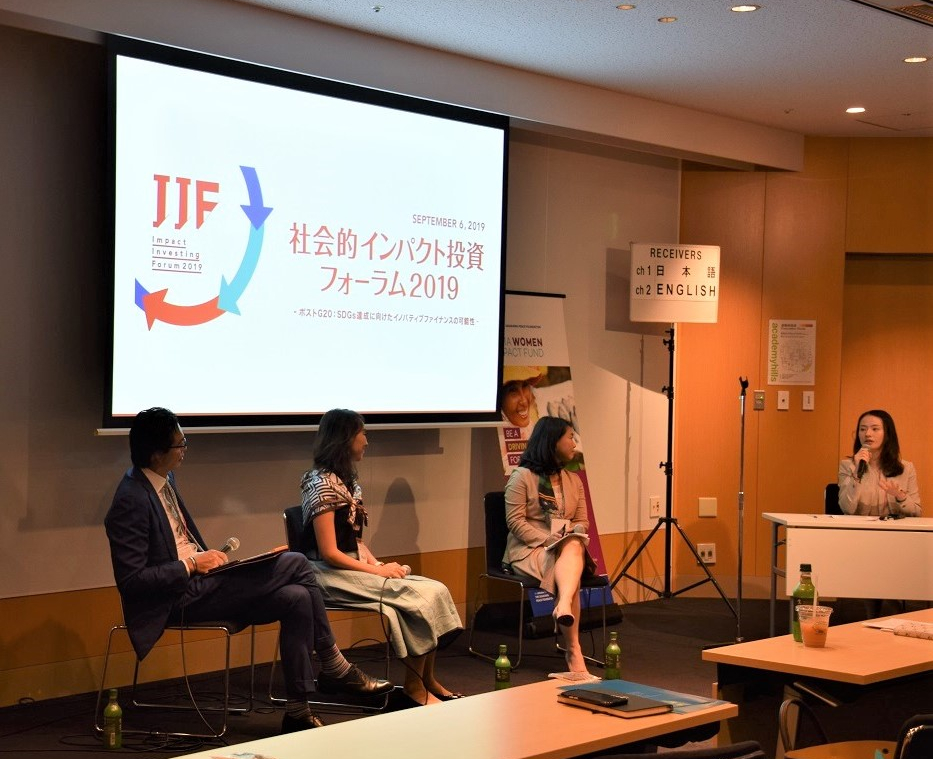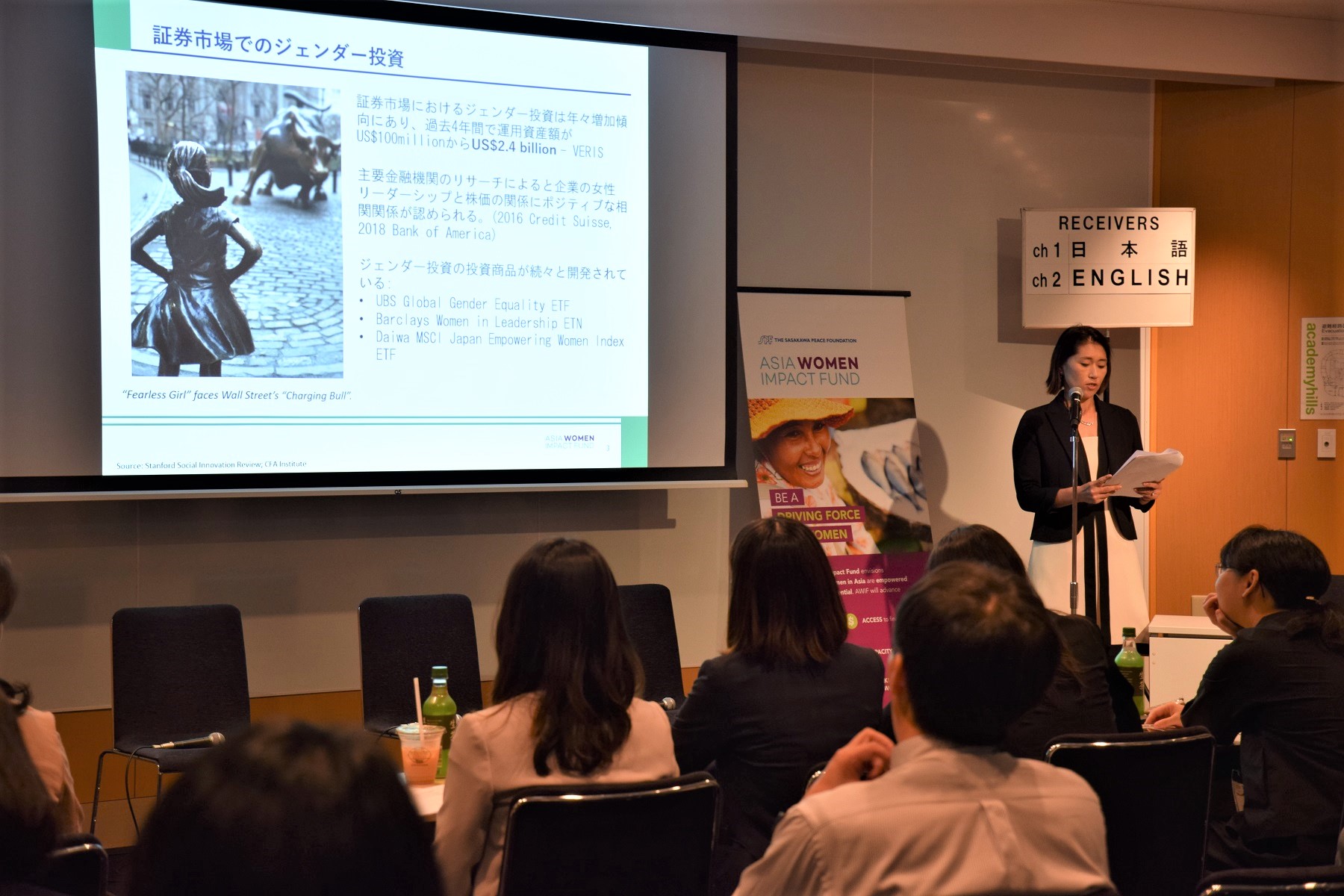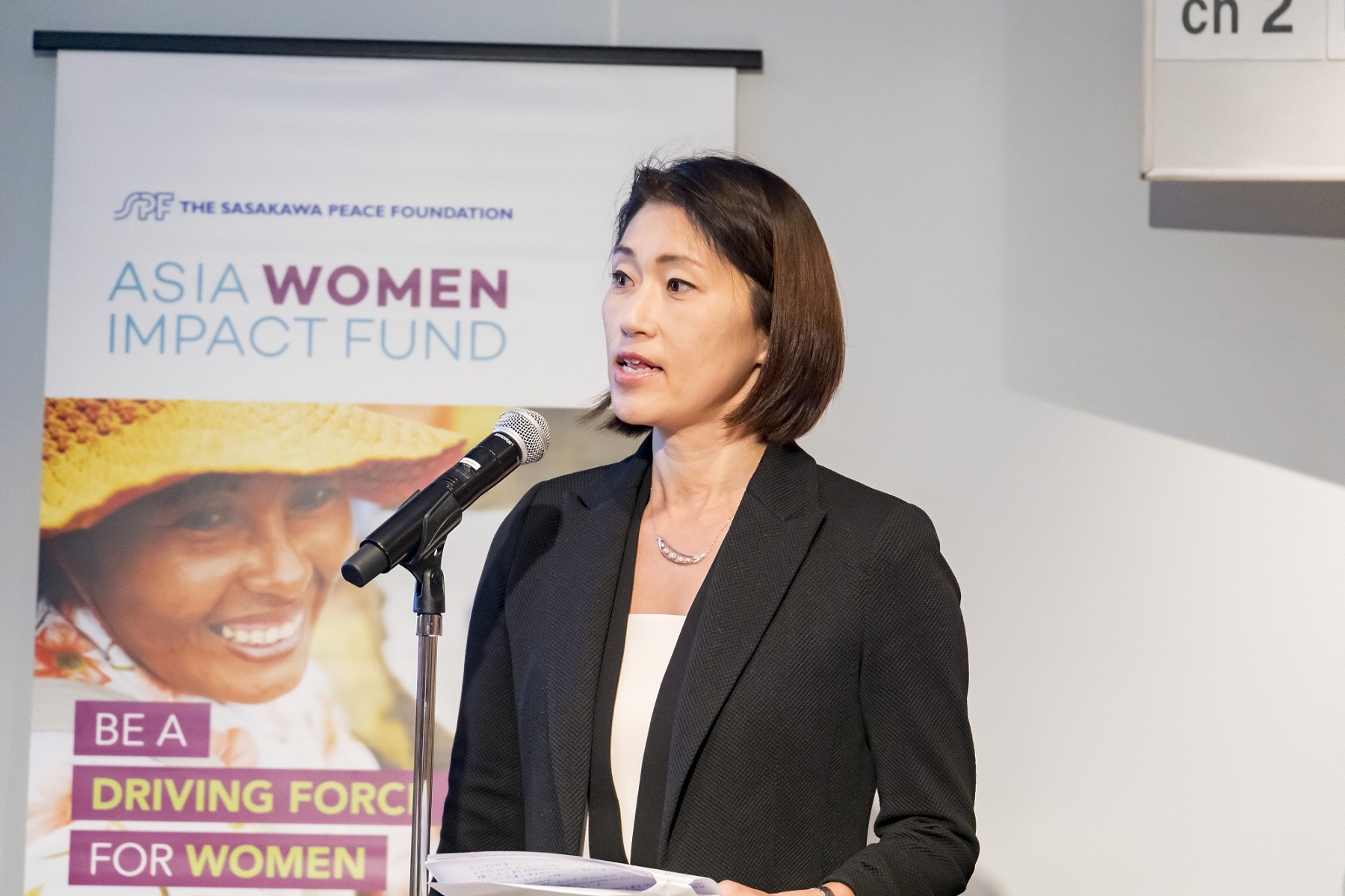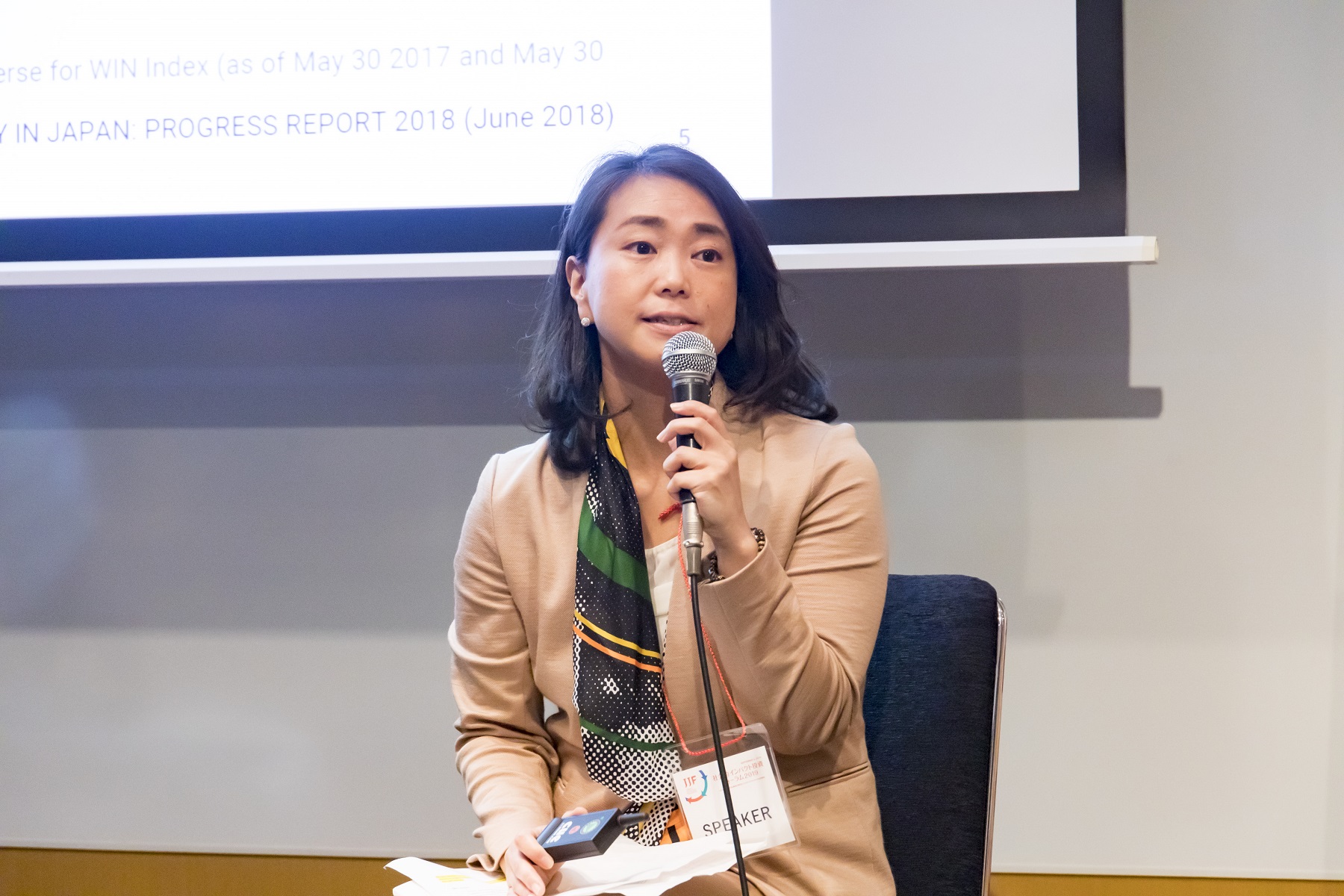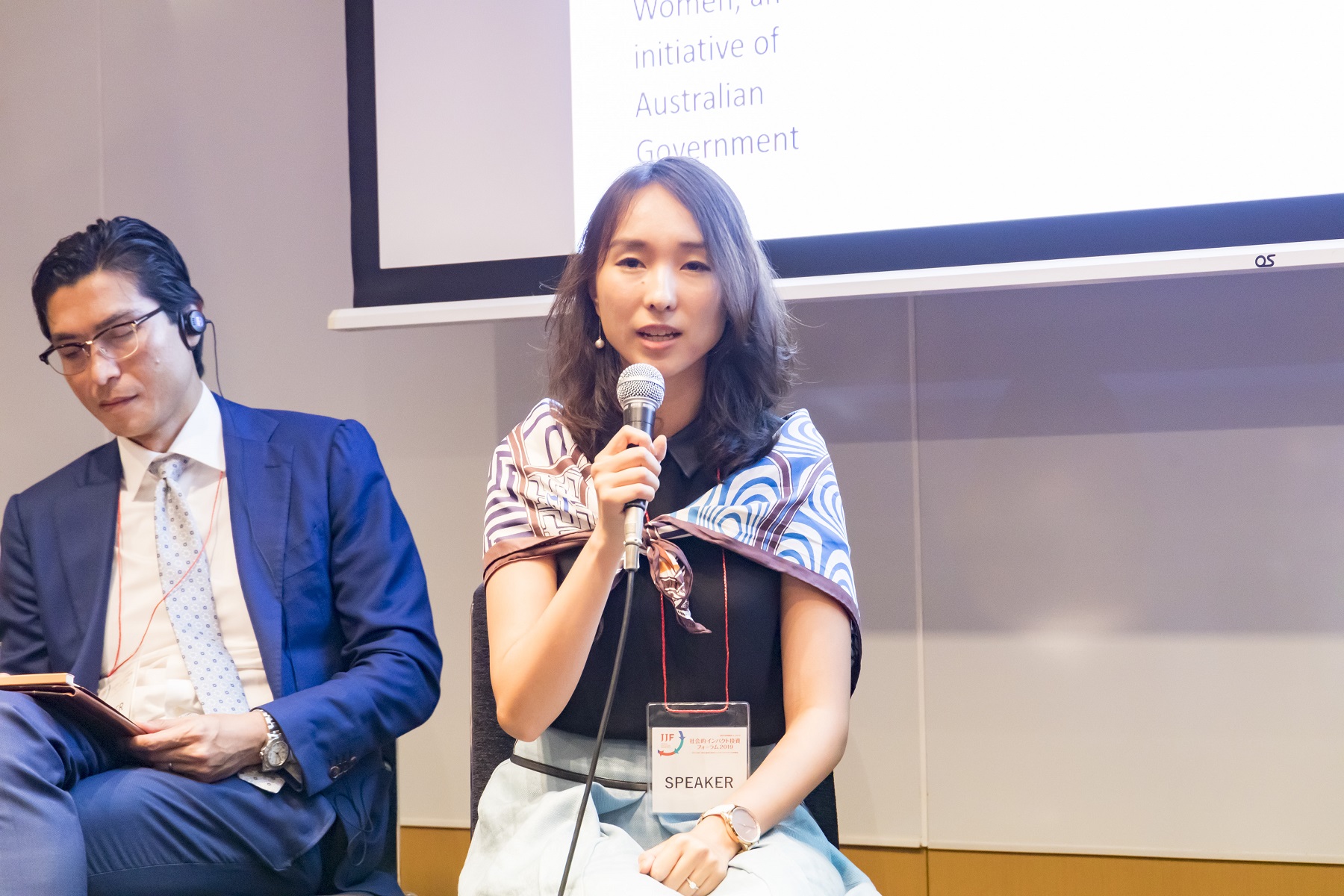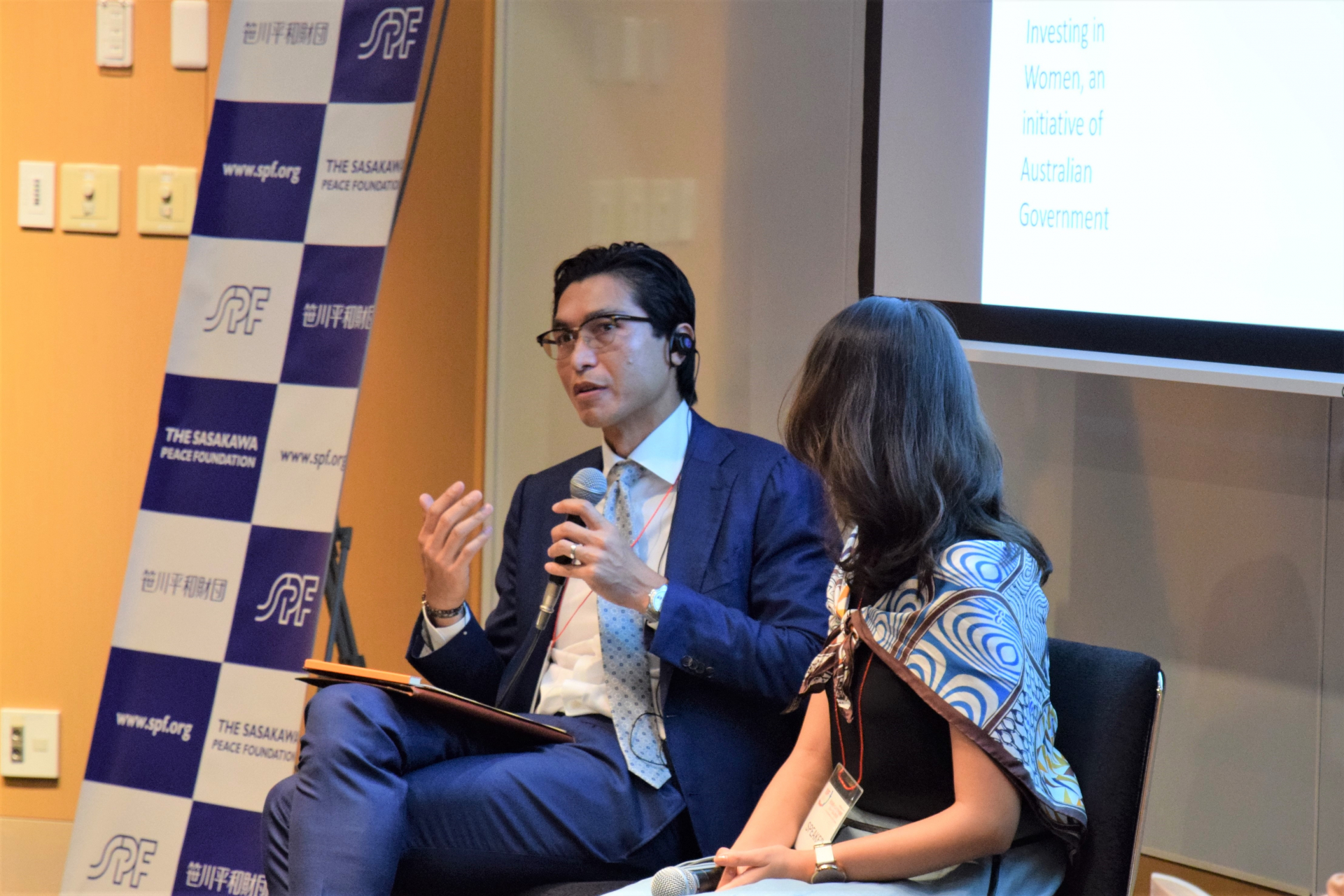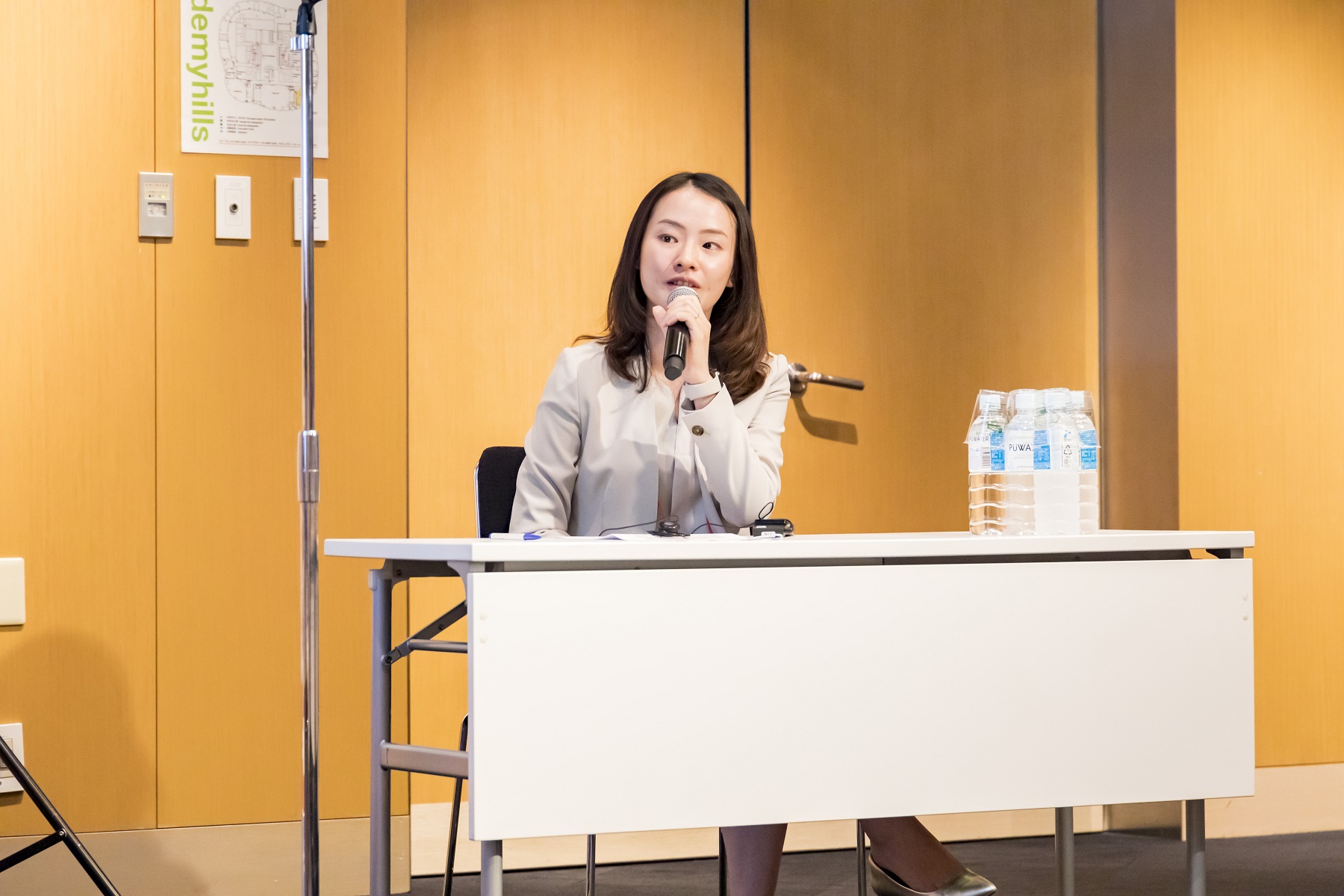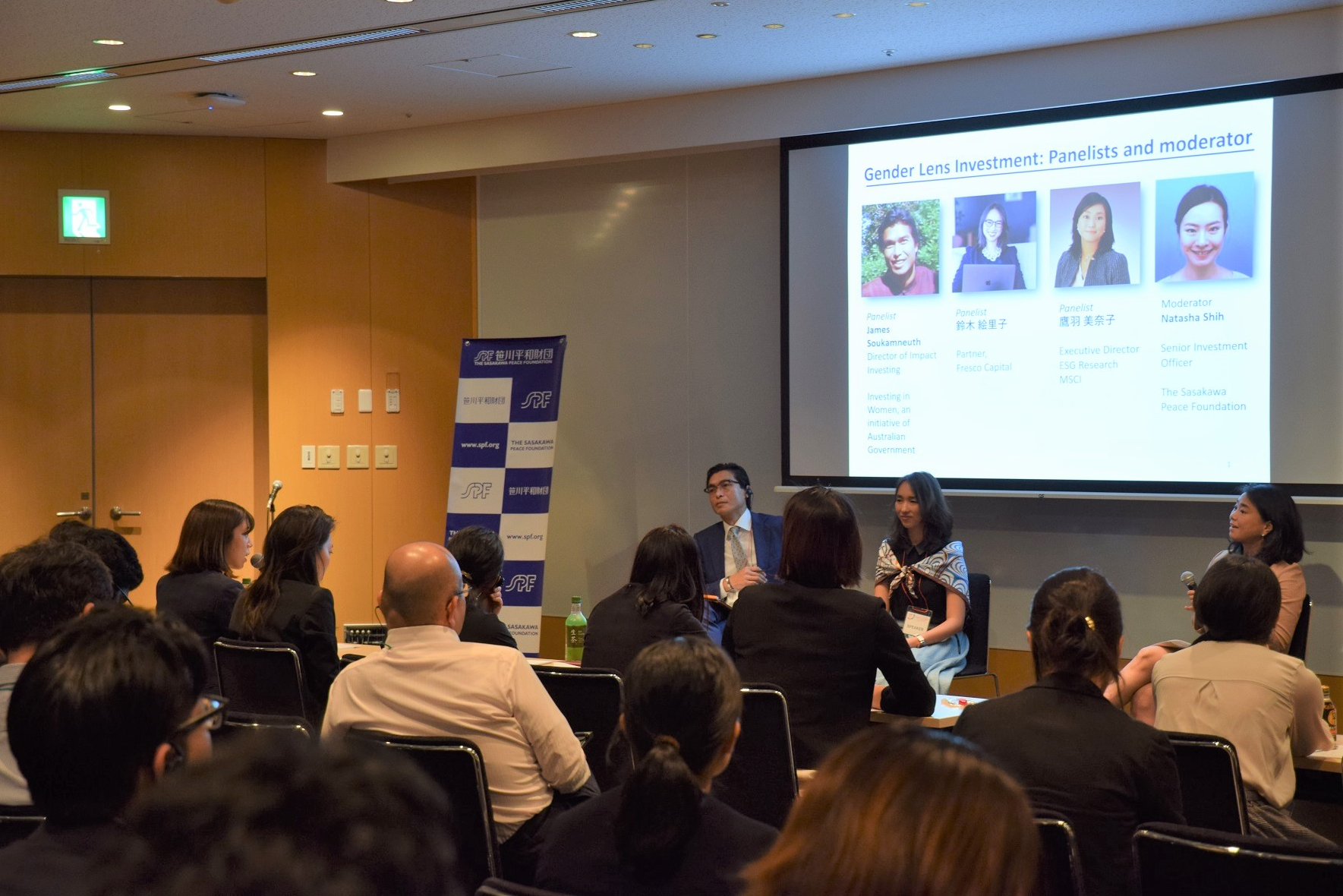With this backdrop, Ms. Matsuno elaborated on SPF’s efforts to promote women's economic empowerment and gender equality, utilizing investment as a tool to achieve social impact while generating sustainable financial return. First, she gave an overview of the
“Asia Women Impact Fund (AWIF)” established in 2017, which aims to invest up to 10 billion Japanese yen from SPF’s assets. Ms. Matsuno also referred to the second phase in this investment,
announcing that up to 30 million USD will be invested in the “Japan ASEAN Women Empowerment Fund (JAWEF)” as part of AWIF’s activities. With the “financial gap” an issue often raised as a challenge in achieving the United Nations Sustainable Development Goals (SDGs), Ms. Matsuno stated that SPF is committed to closing this gap through its efforts. Furthermore, she referred to SPF’s various efforts on gender lens investing and women's empowerment, including the publication of a
report on unconscious gender bias, and the joint presentation of the first
report publicizing the top 100 companies regarding gender equality in Japan, Hong Kong and Singapore, created in collaboration with Equileap, a non-profit organization in the Netherlands that acquires and assesses data provided by public companies in an effort to accelerate progress towards gender equality in the workplace. In addition, she highlighted SPF’s participation in creating a communiqué at W20, one of the private-sector engagement groups that issued recommendations toward the G20 Osaka Summit, in March 2019.
Ms. Natasha Shih, Senior Investment Officer at SPF’s Gender Investment and Innovation Department, moderated the panel discussion that followed, discussing gender lens investment with three panelists from various viewpoints.
Ms. Minako Takaba, Executive Director of MSCI ESG Research, gave an overview of the “MSCI Japan Empowering Women Index (WIN),” which was adopted as one of the ESG investment indices for Japanese equities at the Government Pension Investment Fund (GPIF). First, she responded to the view that companies are likely to be exposed to long-term human capital risks if gender diversity is not taken into consideration. Ms. Takaba said that WIN focuses on the core elements of “Attraction,” “Retention,” and “Promotion” to produce gender diversity scores, utilizing data and information disclosed by companies following the enactment of the Act on Promotion of Women’s Participation and Advancement in the Workplace in 2016. According to the comparison between 2017 and 2018 data from WIN, there was a slight increase in the percentage of gender balance among new hires and total employees. However, Ms. Takaba mentioned, many issues remain unclear regarding the relationship between number of female managers and board members and stock performance, and that long-term efforts will be necessary to ensure further growth.
Regarding the background of the creation of WIN, Ms. Takaba pointed out that enactment of the Act on Promotion of Women’s Participation and Advancement in the Workplace, and the subsequent disclosure of information from companies in Japan, had a major impact. “For the increase of similar initiatives in the future, it will also be necessary to foster understanding on the side of investors,” she said. As the ratio of WIN inclusion varies depending on the participation of women and corporate performance of each brand, Ms. Takaba mentioned that long-term efforts will be necessary for companies committed to both attaining and retaining high rates of gender diversity in the workplace, as an effort to maintain competitive in the long-term.
